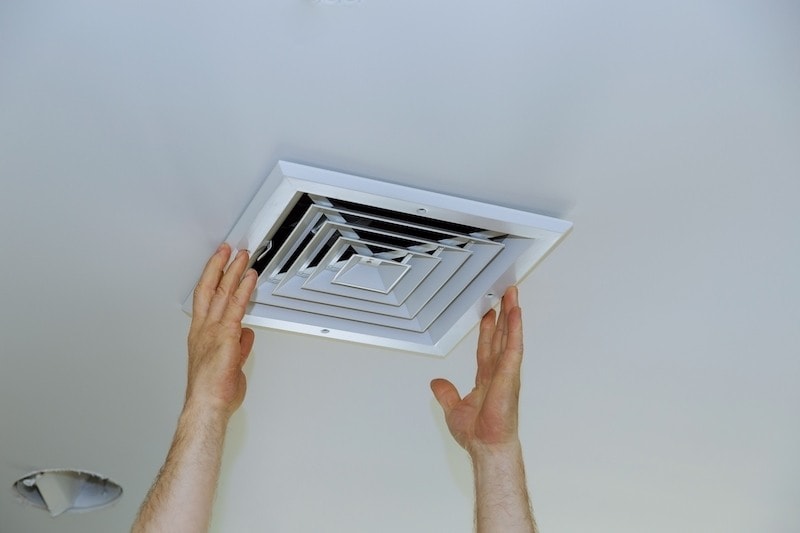Apply for Flexible Payment Solutions with Our Financing Options.

How Long is a Commercial HVAC Lifespan?
In today’s fast-paced business world, understanding the lifespan of essential equipment, such as a commercial HVAC unit, is crucial for planning and budgeting. One of the most frequently asked questions by business owners and facility managers is, “How long is a commercial HVAC lifespan?” This article delves deep into this topic, providing insights into the average lifespan of various HVAC components and the factors that can influence their longevity.
Table of Contents
Understanding a Commercial HVAC Lifespan
The expectancy of a commercial HVAC lifespan is between 15 to 20 years. However, this can vary based on several factors, including the type of system, its usage, maintenance routines, and the quality of installation. Here’s a breakdown of the expected lifespan of some common HVAC components:
- Air-to-air heat pumps: 15 years
- Water-to-air heat pumps: 19 years
- Single and multi-zone rooftop air conditioners: 15 years
- Packaged chillers: 20 years for reciprocating; 23 years for centrifugal and absorption
- Cooling towers: 20 years for wood and galvanized metal; 34 years for ceramic
- Air-cooled and evaporative condensers: 20 years
- Steel water-tube boilers: 24 years for hot water and 30 years for steam
- Gas and oil furnaces: 18 years
- Radiant heaters: 10 years for electric; 25 years for hot water and steam
- Factors Impacting a Commercial HVAC Lifespan

The longevity of commercial HVAC lifespan is paramount for businesses, property managers, and facility operators. While these systems are designed for durability, our actual lifespan can vary based on several influencing factors:
- Unit Size: The size of the HVAC unit plays a crucial role in its efficiency and longevity. An HVAC unit that is appropriately sized for its designated space will operate more efficiently and have a longer lifespan. On the contrary, units that are either too small or too large for the space they serve tend to work harder than necessary, leading to premature wear and tear. An undersized unit may struggle to maintain desired temperatures, while an oversized unit can lead to frequent on-off cycles, which can reduce the system’s lifespan.
- Maintenance Schedule: The importance of regular and preventative maintenance cannot be overstated. An HVAC system that undergoes consistent maintenance checks and timely repairs is more likely to function optimally and last longer. For instance, systems that benefit from high-quality maintenance can exceed a lifespan of 25 years. In contrast, those neglected or receiving sporadic maintenance might see a reduced lifespan, often lasting only 15 to 18 years.
- Installation Quality: The initial installation of the HVAC system sets the foundation for its performance and longevity. A system that is installed correctly by certified professionals will operate at its peak efficiency, reducing the chances of frequent breakdowns and ensuring a longer lifespan. Conversely, poor installation can lead to a myriad of issues, from reduced efficiency to increased operational costs, ultimately shortening the system’s life.
- Usage: The frequency with which an HVAC system is used directly impacts its wear and tear. Systems that are in constant operation, especially without regular maintenance, tend to degrade faster. However, even systems that see heavy usage can enjoy extended lifespans if they are well-maintained.
- Environmental Factors: External elements can significantly impact a commercial HVAC lifespan. Direct exposure to sunlight can cause the system to overheat, while accumulated dust can clog filters and reduce efficiency. High humidity levels can lead to mold growth and corrosion, and poor indoor air quality can strain the system. All these factors combined can accelerate the system’s wear and tear.
The Integral Role of Professional Maintenance
Professional maintenance is the linchpin that holds the longevity and efficiency of an HVAC system together. By entrusting the system’s care to professionals, businesses can ensure:
- Optimal Airflow: Regular replacement of filters ensures that the system has unobstructed airflow, which is crucial for its efficiency.
- System Integrity: Technicians check refrigerant lines for potential leaks or damages, ensuring the system’s cooling efficiency remains intact.
- Cleanliness: Cleaning condenser coils and drains is essential to prevent mold growth and maintain the system’s cooling efficiency. Using the right cleaning solutions can also prolong the system’s life.
A disciplined approach to maintenance, coupled with professional servicing, allows businesses to maximize their HVAC investment, ensuring a comfortable environment and cost savings in the long run.

Spectrum Heat and Air: Your Trusted Partner for Commercial HVAC Systems in North Texas
In the realm of commercial HVAC systems, Spectrum Heat and Air stands out as a beacon of reliability and expertise in North Texas. Catering to a diverse clientele, Spectrum offers extensive services tailored to meet the unique needs of property owners, managers, and businesses of all scales. Whether it’s scheduled maintenance programs, prompt service, or comprehensive system replacements, our professionally trained technicians possess the prowess to handle all types and brands of commercial equipment.
Understanding the pivotal role HVAC systems play in shaping the experiences of customers, tenants, and employees, Spectrum is committed to minimizing downtime. Any disruption in HVAC functionality can adversely impact customer experiences, inconvenience tenants, and disrupt the workflow of employees. Recognizing this, Spectrum has anchored its mission around serving this critical need, ensuring that businesses run smoothly and efficiently.
Conclusion
Spectrum Heat and Air is not just a service provider but a partner businesses across North Texas trust for our HVAC needs. With a commitment to excellence and a customer-centric approach, Spectrum continues to set the gold standard in commercial HVAC services.
